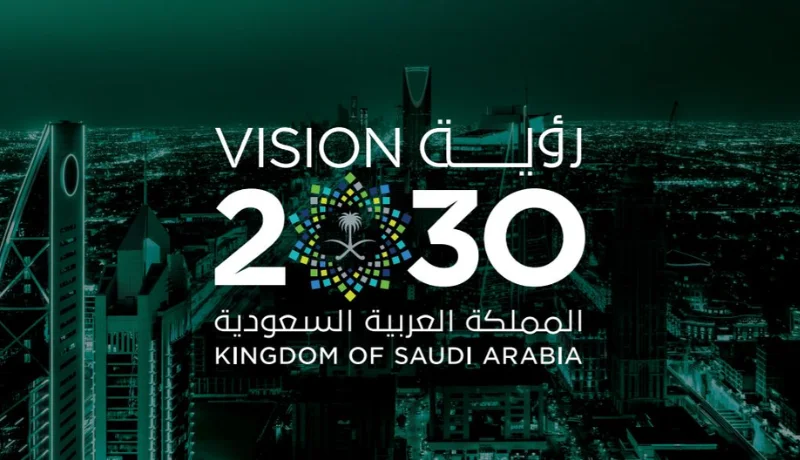31 March 2025, Mon |
3:29 AM

Saudi Arabia, which is implementing the third stage of the three-stage data-driven government or the National Strategy for Digital Transformation, is currently bringing all public services under a single digital platform as part of the Smart Government Strategy (2020-2024), which, once implemented, will deliver public services to citizens’ fingertips via smartphones.
The National Strategy for Digital Transformation, which is aligned with the Saudi Vision 2030 and the United Nations Sustainable Development Goals (UNSDGs), will ensure the complete eradication of poverty, gender equality, and access to education and information for all Saudi Arabian citizens, transforming the Kingdom’s socioeconomic landscape.
To spearhead the digital transformation program, the government has already established the Digital Government Authority and the Saudi Data and AI Authority (SDAIA). Saudi Arabia has introduced more than 30 cloud services, established 169 data centers, more than 175 datasets, successfully implemented 8 digital policies, aligned 130 government departments, registered more than 600,000 establishments with the platform, recorded more than 510 million transactions, and has a user base of more than 22 million people in a few years.
All of these developments will be discussed at the two-day Data-Driven Government Conference KSA, which will be held from November 9 to 10, 2022, at the Fairmont Hotel in Riyadh, Saudi Arabia, with over 300 delegates from the public and private sectors listening to more than 30 government officials and leading private sector officials to map the Kingdom’s digitalisation progress.
Saudi Arabia is developing AI-friendly ecosystems and encouraging the use of data analytics solutions and smart city initiatives such as NEOM. According to a PriceWaterhouseCooper report, artificial intelligence is expected to contribute 12.4 percent of Saudi Arabia’s GDP, reaching US$135.2 billion in 2030. (PwC).
“In the wake of the 4th Industrial Revolution, governments and businesses across the Middle East are beginning to realise the shift globally towards AI and advanced technologies. They are faced with a choice between being a part of the technological disruption or being left behind. When we look at the economic impact for the region, being left behind is not an option. We estimate that the Middle East is expected to accrue 2 percent of the total global benefits of AI in 2030. This is equivalent to US$320 billion,” PwC said in the research report.
“Saudi Arabia holds a clear vision for the future which points towards the development of AI-based technologies. Saudi Vision 2030 and National Transformation Programme identify digital transformation as a key goal to activate economic sectors, to support industries and private sector entities, to advocate for the development of public-private business models and to ultimately reduce the country’s dependence on oil revenues through a diversification of the economy.”
Leila Masinaei, Managing Partner, Great Mind Events Management, and organizer of the Data-Driven Government Conference, says, “Saudi Arabia is fast changing the government’s back office with artificial intelligence and data-driven technologies, some of which we have started to see with the disruption of the Umrah and tourism visa systems – that foreigners could apply and avail without any agency through an app – reducing the bureaucratic red-tape.
“The Data-Driven Government Conference KSA is aimed at bringing the stakeholders under one roof to network, discuss and explore growing opportunities.”
Under Vision 2030, Saudi Arabia has set specific targets to transform into a digital society and economy utilizing data as a national asset to achieve this objective. Data and AI are already disrupting several sectors in the country and have created tremendous achievements especially in disaster management, road safety, and energy consumption management.
The Saudi government is one of the main sectors aiming at capitalising on data and its related technologies to innovate its decision-making, operations and services. Over the past years, the Kingdom has promoted smart government and the use of open data across all agencies with a framework of guidelines and policies to improve quality of life and drive socio-economic development through utilising advanced data management and analytics.
As a result, the Data-Driven Government Conference – KSA will bring together over 300 international and local stakeholders from various government sectors, including ministries, authorities, municipalities, public organizations, and technology developers and consultants, to explore the most advanced solutions for establishing a secure data management, analytics, and utilization infrastructure.
The distinguished expert panel of speakers will include Saudi government decision makers and senior officials, as well as international industry experts, who will discuss the country’s vision of data-driven government and drive the Saudi Vision 2030 National Strategy for Data and AI.
Distinguished speakers at the Data-Driven Government Conference KSA include, H.E. Abdulrahman Mirza, General Director of the Center for Research on Educational Policy, Ministry of Education, KSA; Konrad Pesendorfer, President, General Authority for Statistics KSA; Abdulrahman Ibrahim, Chief Data Analytics and Innovation Officer, Al-Madinah Region, Development Authority KSA; Nada Alamri, Director, Del Apps Enablement, Communications, and Information Technology Commission (CITC), KSA; Ahmed Al Zahrani, Director, Development Unit – HTM, Development & Integration, Ministry of National Guard, KSA, Badar Khan, Director of Digital Platforms, NEOM; Fahad Alhamed, Chairman of the board, Saudi Cloud Computing Association; Naveed Shafeek Ahmed, Information Security & IT Governance Consultant, National Information Center – SDAIA, KSA Information Center – SDAIA, KSA, among others.
The conference will address, among other things, the government Vision 2030 roadmap for digital transformation and data utilization; Empowering the Kingdom of Saudi Arabia through the use of data analytics to improve quality of life; latest technologies in advanced data management and analysis; and the role of data knowledge management in government entities. Using advanced analytics to transform elements in data models across the government sector, for example.
The Data-Driven Government Conference KSA is sponsored by Neom, the Cloud Computing Association, and the Saudi Society for Data Science.